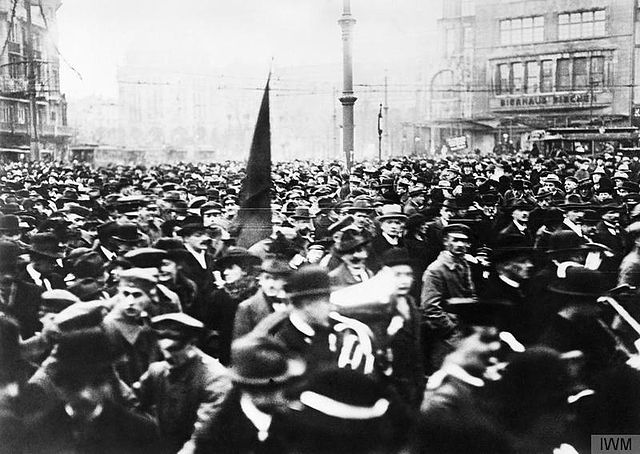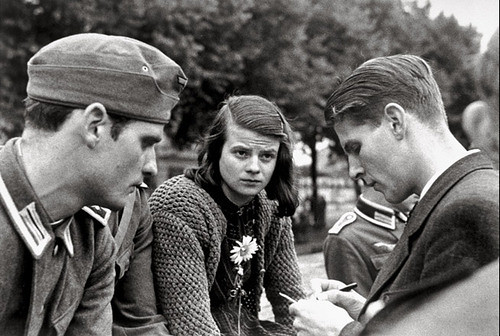One could say that the essential innovation of capitalism is the commodification of time itself. Perry Anderson wrote about how it was the wage relationship, which allowed capitalism to reproduce its depredations on an hourly basis, which transformed society. Where previously the economy could never be clearly demarcated––it was always a mosaic of religious, feudal, social, and economic rights and obligations––the wage relationship, for the first time in human history, isolated the economy, as we understand it today, as a completely separate pillar of civilisation.
The urgency that the commodification of time imparts in the productive forces of society infects us all with a certain anxiety. We all struggle to relax completely even when we have “free time”, because all time is ripe for being used “productively”. One asks: “who can put a value on the time we spent on a warm summer’s day at the shore, sitting on a picnic blanket, sharing a sandwich made with love and care at home, and letting the sea breeze disperse our anxieties like the seeds of a dandelion?” Well, the market can.
The market is utterly sociopathic in the way that it relates to human beings. It would prefer that we, too, become sociopaths, and I am sorry to say the market often succeeds in drawing out our worst tendencies. One direct consequence of this is that in our current age of information saturation––where time in the form of attention has been elevated into a prime commodity––we have been manipulated into having a pathological inability to reserve our judgement before we fire off our “hot takes” for the sake of building an audience. Inevitably a segment of people, motivated in part by money but also because of an egoistic desire for adulation, debase themselves to cultivate an online following, a phenomenon called “clout chasing.” I believe this is one of the worst things that has ever happened to humanity.
Bad history as a symptom of brain rot
The problem with giving your hot takes on matters of the day is that it reduces the take baker into a jester in whatever sad, irrelevant, and inward-looking court of public opinion to which the take baker finds themselves contractually obligated to cater. I am sympathetic to the person who, sub-consciously, knows that they are setting themselves up to fail but feels that they must preserve the clout they have worked hard to farm, especially when it is intrinsically tied to their economic survival. I am especially sympathetic to people on the left, where there is a dearth of billionaire money sloshing around to feed little attention-starved piggies at the trough of ignominious evil. Unfortunately, this means that aesthetic leftists––who can churn out condemnatory takes at a rate far exceeding the productive capacity of more measured, reflective people––get an outsized influence on the left. In the process, they infect everyone with a flawed framework of thinking that is divorced from reality––like actual, measurable reality in a Marxist materialist sense. However their frameworks are comfortingly insular in their packaging; think takes luxuriously lathered with reference to Rosa Luxemburg, evocations of the First World War, famous betrayals, references to war credits, etc.,.
The first grave error one can commit in understanding the world is to not read history. The second grave error is to read it in a way that seems to confirm everything you believe in already. Recent discourse regarding Germany’s planned budgetary largesse for its military on the left, frivolously labelled as “war credits,” is a textbook example of intellectual self-debasement for the sake of chasing clout. For one, the obsession that some irrelevant left-wing sects have for concentrating the bulk of their criticism toward die Linke reeks of a certain envy. Some would burn down the kingdom to be sovereign over the ashes. But this isn’t even a kingdom; it’s a township at best. A pointed bitterness towards die Linke’s unexpectedly strong showing in the recent elections is my only explanation for this obsessive Mean Girls-style approach to discussing issues of international importance. But let he who is free from sin be the one to cast the first stone. It is not pertinent for me to aggravate this internecine feud. However, the historical analogies used to decry the actions of the German government, die Linke’s support for it in the Bundesrat, as well as the hyperbolic descriptions of the plans themselves assumes that every left-leaning person reading these furious takes is blithely uncritical and, furthermore, plainly unhelpful in devising a strategy to resist them.
Consider, for example, the hyperbolic claim that the current plans to upgrade the Bundeswehr are akin to Great War era war credits. Germany intends to increase spending on the military to about 5% of GDP, of which 3,5% would be pure military investments and the remaining portion for dual-use infrastructure (think trains and bridges that can actually withstand transporting men and material). It would be helpful to set this level of spending in some context if you are going to make comparisons to WWI, but of course that would undermine your argument. In WWI, Germany’s economy shifted to focusing on advancing the war, with spending reaching a peak above 40%. In WWII similar scales of spending were seen, anywhere from 30% to 50% at historic peaks. This is easily Googleable information but it seems that supposed historians inhabit an econometric world that is rooted firmly in the early 20th century.
Plainly, the comparisons to WWI or WWII militarism are bafflingly divorced from reality. But so are the political comparisons. If people spent a bit of time thinking about how modern militaries operate, how defense and attacks work, how wars are played out today, they would begin to see the need for warding off certain threats with an excessive projection of force. The level of human casualties that people tolerated in the wars of the 20th century are simply not acceptable today. We are blessed to live in a world where the horrors of those wars are a distant memory, beyond our wildest comprehensions. Tens of millions of people died in those wars as a direct result of military actions, i.e. bombs and bullets. The level of casualties seen in the Russian war on Ukraine, after over three years, is estimated to be currently around 200.000 people (an underestimate of course). Each of those lost lives is a human tragedy and we should never lose sight of that. By the same logic we must also not devalue the lives lost in the wars of the 20th century simply because they were orders of magnitude greater. Investing money in the military so as to build an overwhelmingly powerful defensive capability (overkill, shall we say) is meant to limit the ability to inflict harm on civilian populations on anywhere near the scale of the world wars; a hugely expensive endeavour in peacetime but one that can at least be explained if not wholly justified.
It is therefore all the more astounding that people who wave flags with hammers and sickles, supposed stewards of the legacies of Lenin and Luxemburg, make hyperbolic comparisons to those conflicts when assessing a wholly different contemporary context. I suspect that the reason such people lead their flock down these blind alleys and intellectual cliff-edges is that they don’t really respect themselves or their flock. Politics is an aesthetic struggle to these people and the only game in town is to chase clout in a diminishing space for serious left-politics––the township whose ashes they wish to be sovereign over. In so doing, they mislead us and encourage us into becoming insular caricatures of ourselves. Marx was a rigorous materialist, a bean counter extraordinaire, and we would do well to ground our understanding in exhaustively researched material facts. This is something that clout chasers are constitutionally incapable of doing because they need to bake their hot takes quickly while the news cycle is favourable. It takes time to synthesise information and then give a considered analysis, something which contemporary society strongly discourages. I doubt Lenin or Luxemburg would have been particularly resistant to these forces either.
What is to be done?
There are three concrete criticisms that can inform a strategy for die Linke––or any leftist organisation––to oppose the plans to raise military spending. First and foremost is the pork barrel constitutional coup that the incoming government carried out to coerce approval of these plans. A famous example of a lame duck session of the legislature used to rubberstamp controversial acts is the confirmation of justice Amy Coney Barrett after the death of liberal girl boss, queen Ruth Bader Ginsburg. The German public has a romantic attachment to the sacrosanctity of its institutions and its procedures and it would behoove the left to attack such ham-fisted procedures, not strictly because of a negative sentiment towards militarism, but also a positive sentiment towards constitutional democracy. Enabling such tactics erodes the fabric of democracy, something that, for all its faults, is a terrain leading to fewer dead comrades than states of constitutional anarchy. In this regard, the Green party in Germany has become an accomplice to the worst act of constitutional vandalism in the party’s sordid, betrayal-studded history.
Secondly, the fact is that Germany’s fiscal fetishism has only been loosened for the sake of military spending and no other sector of the economy. In this sense, the government treated security solely through the lens of militarism. But security as seen through the lens of gainful employment, food, healthcare, social support and care are all demoted in importance. What is the point of feeling safe from Russian bombs when the social fabric of society continues to degrade? On this point at least, I think the left has been adequately vocal but in a siloed manner, where the link between this social fabric is not drawn to grander constitutional and political concerns. In this sense, the left is conducting a form of retail politics that fails in the face of nationalistic jingoism, Sinophobia, and ideas of Germany’s responsibilities on the world stage. But credit where it is due, the left is making the case for something and not solely against something.
Lastly, and most importantly, for all the complaints one can make about Germany and the German public, the nation is by and large against the idea of the AfD holding the levers of power. Voters across the spectrum list resisting the AfD’s advance as a primary concern. Heidi Reinichek’s speech deriding Merz’s razing of the Brandmauer was considered a turning point in the election campaign. Well let’s take this further, let’s establish the left as a bulwark against the AfD and not the cowards in die Grünen or the SPD, and certainly not the leftwing of the AfD that is the unholy union. Do we really want to beef up the military in this haphazard manner and then one day see the AfD in charge of governing a nation that has been re-armed? We can accept the need for re-arming in the face of Russian aggression in Eastern Europe, for economic stimulus, for much needed infrastructural upgrades, and also for breaking free from dependency on the US military as a guarantor of European defence. But the case needs to be made that, much like ICE in the USA, much like the Freikorps in WWI, we do not want to build an arsenal that will one day fall under the control of fascists.
Such a political strategy that taps into the fears of the AfD, that makes connections to international events with which broad swathes of the public are familiar, that taps into a deeply ingrained historical memory is a holistic strategy for the next five years. We must dismantle the economic and social forces that have fed the beast that is the AfD. Merz is playing a dangerous game vilifying immigrants, cutting social spending, playing pork barrel, anti-constitutional politics while beefing up the Bundeswehr. The capital-L Left is the sentinel of democracy, not the SPD, not the Union, and certainly not die Grünen. But don’t expect a clout-chaser to spell that out for you.




